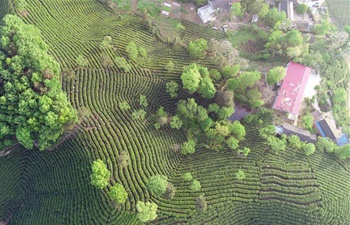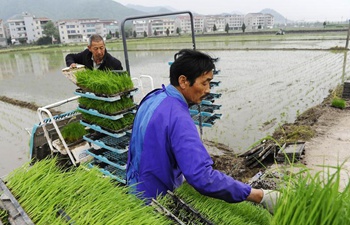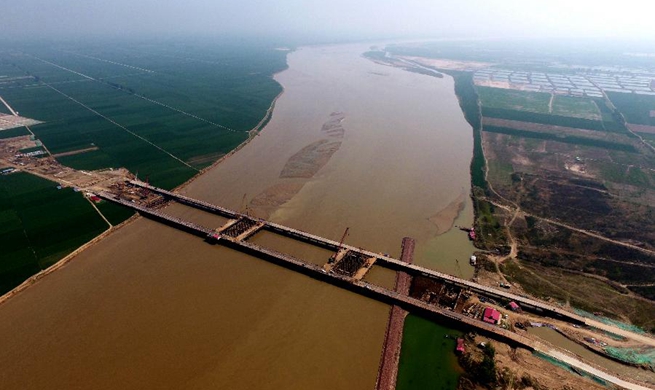BEIJING, April 18 (Xinhua) -- China's terrestrial ecosystems, including forests, shrub lands and farmlands, have played an important role in storing carbon emissions over the past decades, Chinese research has shown.
A study, published on the Proceedings of the National Academy of Sciences (PNAS) of the United States on Wednesday, found that China's forests, shrub lands and croplands sequestrated 201 million tonnes of carbon every year from 2001 to 2010, which offset 14.1 percent of the carbon emissions from burning fossil fuels in China during the same period.
China's forests are the major carbon sinks, contributing 80 percent of the carbon storage by terrestrial ecosystems, while the croplands and shrub lands make up 12 percent and 8 percent respectively, the research showed.
"These carbon stock changes are largely attributed to climate change, ecological restoration projects and cropland management," said Fang Jingyun, lead scientist of the research and an academician of the Chinese Academy of Sciences (CAS).
In particular, China's six major ecological restoration schemes - the Natural Forest Protection Project, the Shelter Forest Program in northern, northeastern and northwestern China, the Grain for Green Program, the Returning Grazing Land to Grassland Project, the Yangtze River and Pearl River Shelter Forest Projects and the Beijing-Tianjin Sand Source Control Project - have contributed 36.8 percent of the total carbon sequestration by terrestrial ecosystems, Fang said.

















